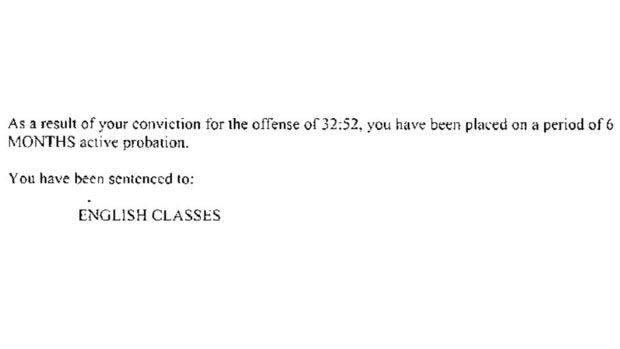Marta* asked me to look at her hands.
It was as chilly as winter gets in southern Louisiana. She and I stood hunched together in a windswept parking lot in Metairie, a suburb flanking the northwestern edge of New Orleans. In Spanish, Marta told me that she paints high-rises all day to earn money for her children. That’s why there’s paint on these hands, she said.
Lately, she had been spending her hard-earned money on ludicrously overpriced English classes mandated by her local court as punishment for not having a driver’s license. She nodded across the parking lot toward a low-slung brick church, where dozens of other Latinos gathered around the back door waiting for class to begin. I asked her what happens to people who don’t have the money to pay for the class. She gazed at me darkly. “Pueden venir la policía,” she replied. “The police can come.”
America loves having it both ways with immigrants, and Louisiana is no different.
In and around New Orleans, contractors recruited thousands of immigrants and migrant workers to help rebuild after Hurricane Katrina in 2005. Despite being subjected to wage theft and poor working conditions, many families stayed and built communities. In Jefferson Parish, where Metairie is located, the number of Hispanic residents nearly doubled between 2000 and 2014. Now, about 14 percent of the residents are from other countries.
The predominantly white communities haven’t reacted well to the growing diversity. Latino residents told me that the police are often hostile. I heard stories of officers pulling over Latinos without cause and saying, “Do you know why you were pulled over? It’s because you don’t have a license.”
Many defendants facing traffic tickets, some of them limited-English proficient (LEP), face adjudication in the First Parish Court. Usually charged with minor offenses like not carrying a driver’s license, they face an obstacle course of barriers to justice that seem to serve no other purpose than to extort cash from the most vulnerable because of their poverty and national origin.
First, the court charges a fee to any LEP defendant who uses an interpreter during a court appearance. Although the interpreters serve many defendants in a day, LEP defendants are each charged $130 for a few minutes of their time. The interpreters and judges process cases with the ruthless efficiency of any money-making scheme, without properly explaining to defendants the charges against them, much less their rights in criminal court.
This past March, the SPLC filed a civil rights complaint to the U.S. Justice Department, alleging that the court’s practices violate the Civil Rights Act of 1964, which prohibits discrimination based on race, color, sex, religion or national origin.
The fact is, a native English-speaker can stroll in and out of court with a $100 fine, while an LEP defendant with the same charge leaves court owing $230. Further, an LEP defendant with sufficient cash flow can choose to pay off such a ticket without going to court, meaning that a wealthier defendant pays far less than a poor one. This is not equal access to justice.
The First Parish Court then adds insult to illegal injury. Without any actual examination of their ability to speak English, a sea of white judges and court staffers sentence LEP defendants to mandatory English classes as a condition of probation for minor traffic tickets, with potential jail time looming if they fail to complete them. The court’s paperwork reads, “You are hereby ordered to enroll in (10) weeks of ESL classes. … Failure to comply with the therapy will result in a rule to revoke your probation.”
The classes, operated out of a local evangelical church, cost 10 times the local market rate for English classes. Defendants told me that they were not permitted to take similar English courses offered elsewhere to meet the terms of their probation. In addition, the people running the class accepted only cash and did not offer receipts. The defendants, all grouped into the same course regardless of their prior knowledge of English, paid nearly $300 for the course.
These classes and potential jail time do not serve to punish people for traffic violations or allow them to contribute to society. Rather, they patronizingly punish low-income immigrants struggling to feed and educate their children.
As for Marta, we still keep in touch.
Sometimes she calls me late at night, deeply anxious that she could again be criminally prosecuted because of where she’s from. She worries about what could happen to her children. She worries about her money being siphoned away from their needs. She worries that the English classes could be ongoing and hurting someone else.
The truth is, I cannot soothe her. Since we’ve filed the complaint, we’ve heard reports that the First Parish Court could be mandating ESL classes at another location and has even closed the courtroom to observers. None of this surprises Marta. She knows that the overarching problem – pernicious bigotry and discrimination – has not been solved.
And still, she paints.
* This individual’s name has been changed to protect her privacy.
Sarah Bechdel is the senior outreach paralegal for the SPLC’s economic justice project.



